
Indonesian host’s saga adds to anxieties of LGBTQ folk ahead of election: ‘this is who I am’
- A celebrity recently quit a TV show after being rebuked for ‘dressing like a woman’, in a case LGBTQ activists say outlines the deep prejudice the community faces
- The timing of the incident, just weeks from the election, shows officials in the Muslim-majority nation continue to believe addressing LGBTQ rights will be ‘political suicide’
“This is who I am and how I dress,” the entertainer said in a defiant Instagram post to his 32.8 million followers.
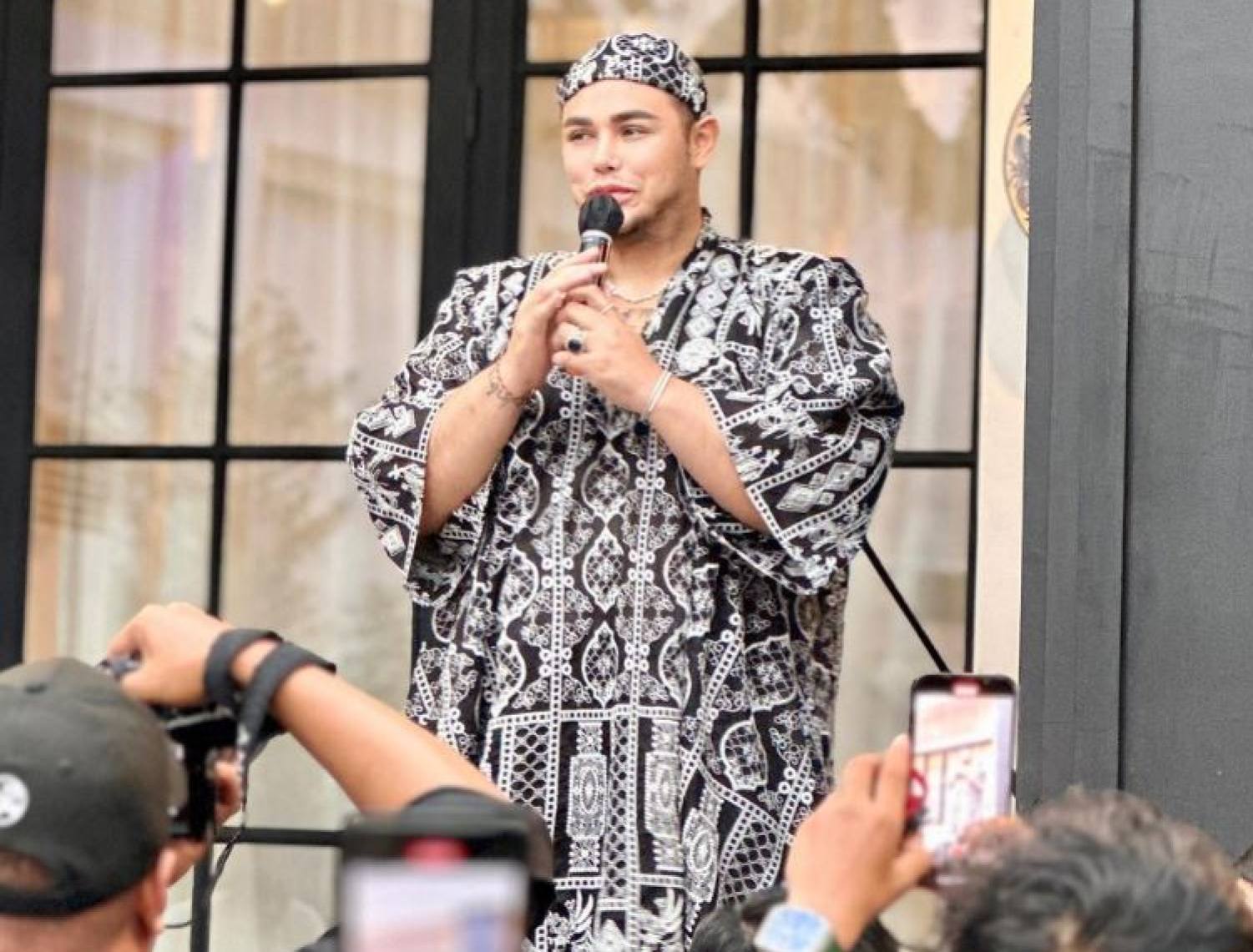
The saga split opinions from the public, with some supporters vowing to stop watching the show in protest, while others accused the cross-dressing Gunawan of being a bad role model.
It comes as Indonesia’s LGBTQ community has increasingly been feeling politically “left out in the cold”, said Hendrika Mayora Victoria, the country’s first transgender public official.
“I could feel for him because I often have to face the same parochial attitude,” said Hendrika, who was in 2020 elected chair of her village council in Habi, East Nusa Tenggara.
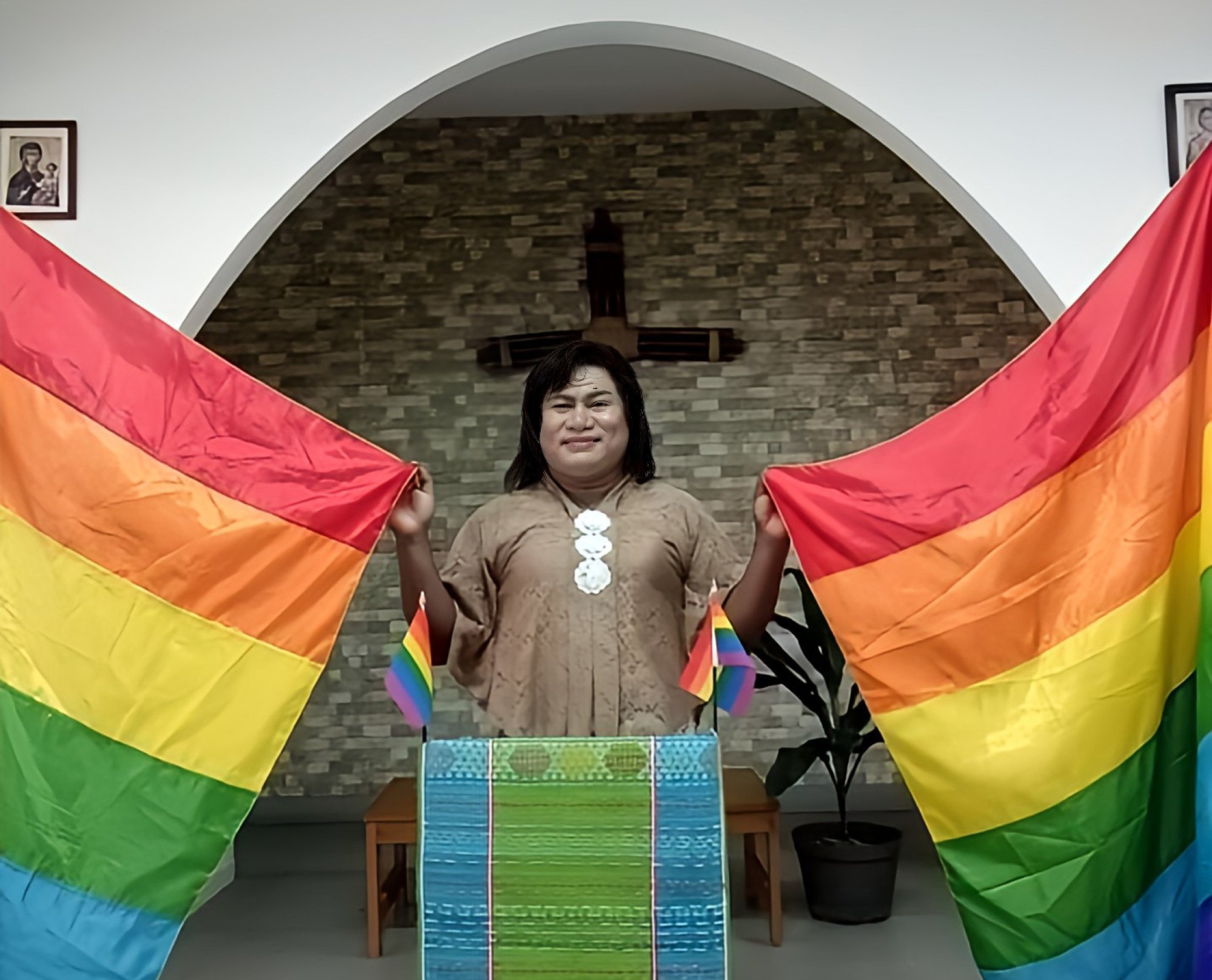
If an internationally renowned designer such as Gunawan could not escape social and official censure, it stood to reason that ordinary LGBTQ people had to put up with worse, she added.
“I have qualms about our three presidential tickets since none seem to care genuinely about issues that matter to sexual minorities,” she said.
Being LGBTQ is considered ‘un-Indonesian and a Western import’. Can that change?
Arisdo Gonzalez, a Jakarta-based activist with LGBTQ advocacy organisation Pelangi Nusantara, shared those sentiments.
“I’m caught between a rock and a hard place when it comes to casting my vote for any of the presidential candidates,” the 25-year-old said. He added that throughout the election discourse, LGBTQ issues were treated as an “afterthought” at best.
Arisdo said most politicians in the Muslim-majority nation viewed it as “political suicide” to be associated with the issue of LGBTQ rights.
A 2020 Pew Research survey found that only 9 per cent of Indonesians agreed that homosexuality should be accepted by society. While that number was up from 3 per cent in 2013, it highlights the long road to acceptance for LGBTQ people, and the risks politicians face for showing them support.
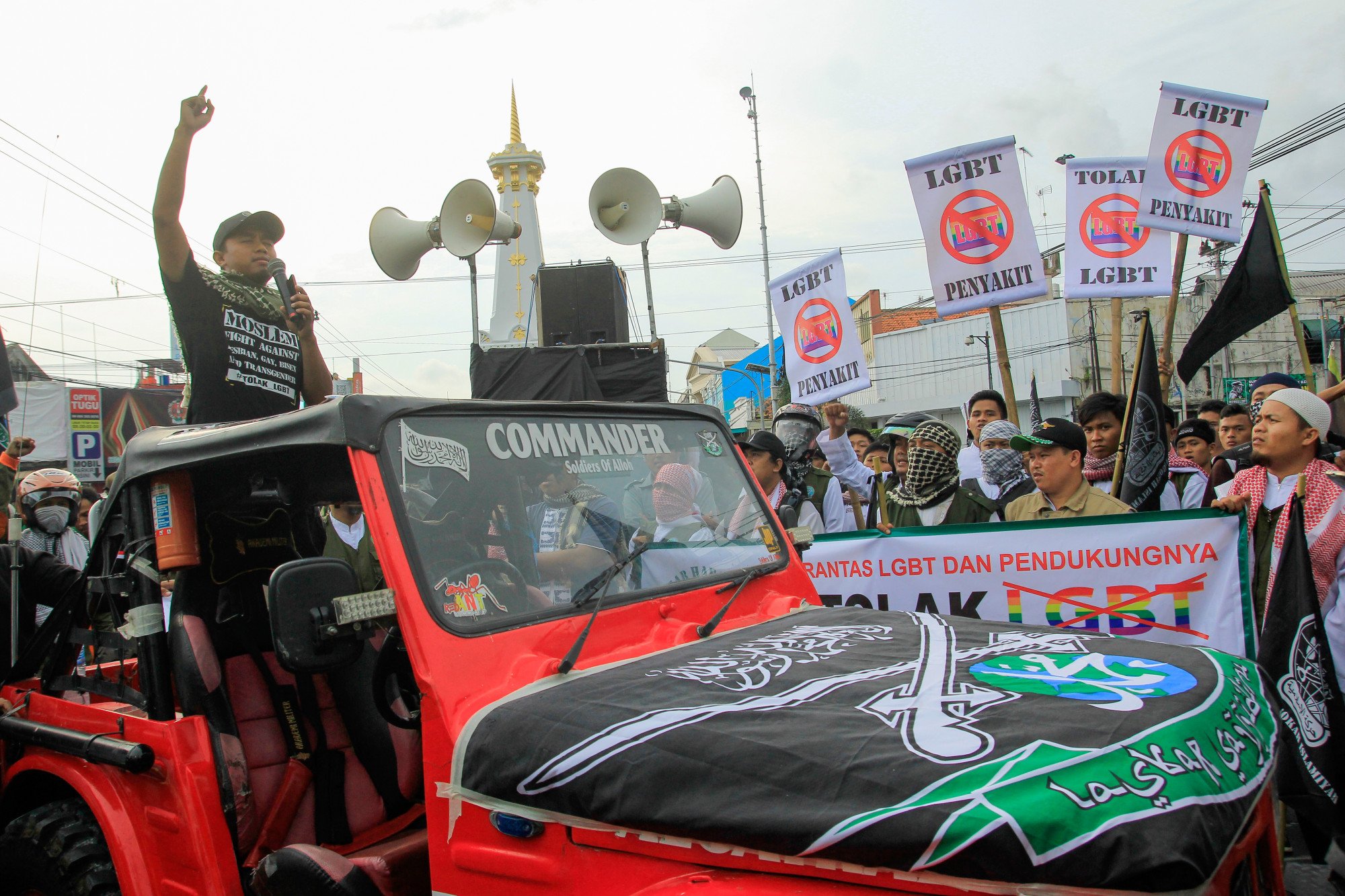
“During the last election, even PSI (the Indonesian Solidarity Party), which likes to portray itself as progressive, distanced itself from openly supporting LGBT rights,” said Arisdo.
In the 2019 election campaign season, a series of PSI banners saying, “Respect the rights of LGBT people”, appeared in the streets of Jakarta, sparking an avalanche of anger towards the party on social media.
The PSI denounced the banners as “fake” and claimed it was a “cheap shot” at sabotaging its electoral prospects.
In Indonesia, ‘LGBT’ label is linked to criminality amid ‘societal homophobia’
In this year’s election, none of the major parties specifically addressed LGBTQ rights in their manifestos.
Partai Hijau, or the Green Party, is the only group to have openly declared its commitment to upholding LGBTQ rights, but it failed to garner enough public support to qualify for the election.
Hendrika pointed out that all three presidential hopefuls had “dubious histories” when it came to human rights, and LGBTQ rights in particular.
While homosexual acts are not illegal in Indonesia, three Islamic political parties support adding penalties for them into a major revision of Indonesia’s criminal code.
All three presidential tickets are now backed by each of those parties: the Prosperous Justice Party is part of the coalition supporting Anies; the National Mandate Party is part of Prabowo camp; and the United Development Party supports Ganjar.
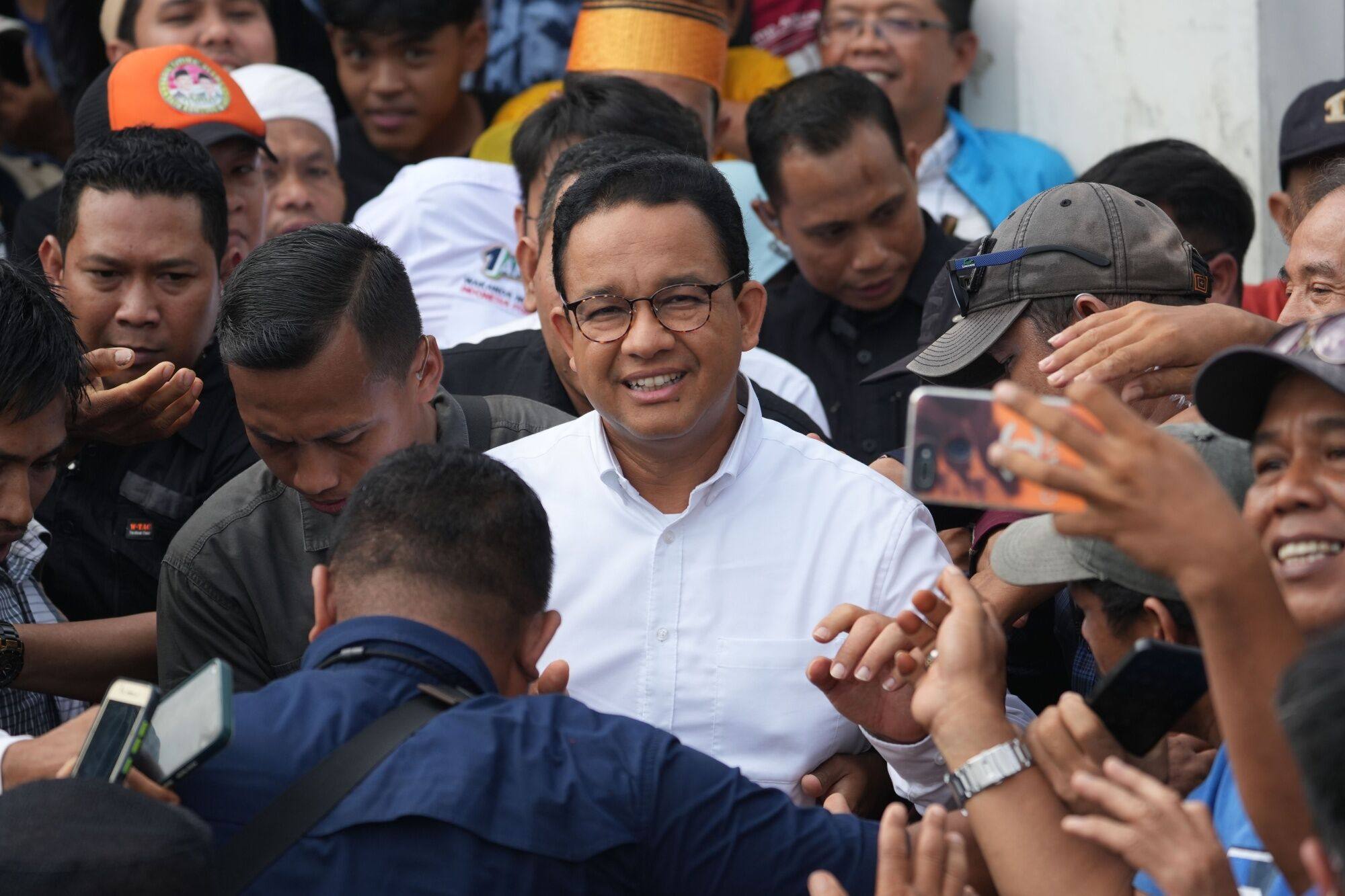
The only presidential candidate to have been questioned about his stance on LGBTQ rights so far is Anies.
“Personally, I’m against it as a man of faith,” he said in response to the question asked during a public question and answer session in Jakarta on December 22.
Anies then tried to soften his statement by saying that as citizens, LGBTQ people should still be accorded the same rights as others by the state, except when it came to marriage equality.
Same-sex unions were “against the teaching of all the recognised religions in Indonesia”, he said.
Exorcisms, ‘corrective’ rape: inside Indonesia’s LGBT ‘conversion’ therapies
Regarding equal employment opportunities for LGBTQ people, he said: “If you want to find work, just do so without making a fuss of yourself. No need to accentuate your [sexual identity].”
Hendrika said Anies’ response only highlighted the lack of empathy and understanding politicians had for LGBTQ Indonesians.
Ratna Batara Munti, a legal practitioner at the Jakarta-based APIK Legal Aid foundation, said rather than pander to the discriminatory view that LGBTQ folk were a “social ill”, presidential candidates should seek to guarantee equality before the law for all Indonesian citizens, including sexual minorities.
“In my advocacy for transwomen in West Java, I often find that they have no access to employment, education and other opportunities to better themselves,” she said.
Arisdo said most of Indonesia’s LGBTQ people, far from demanding marriage equality, only wanted to be “left in peace” so they could carry on with their lives with dignity. “No discrimination in accessing public facilities, work and education. That’s about the size of it,” he said.
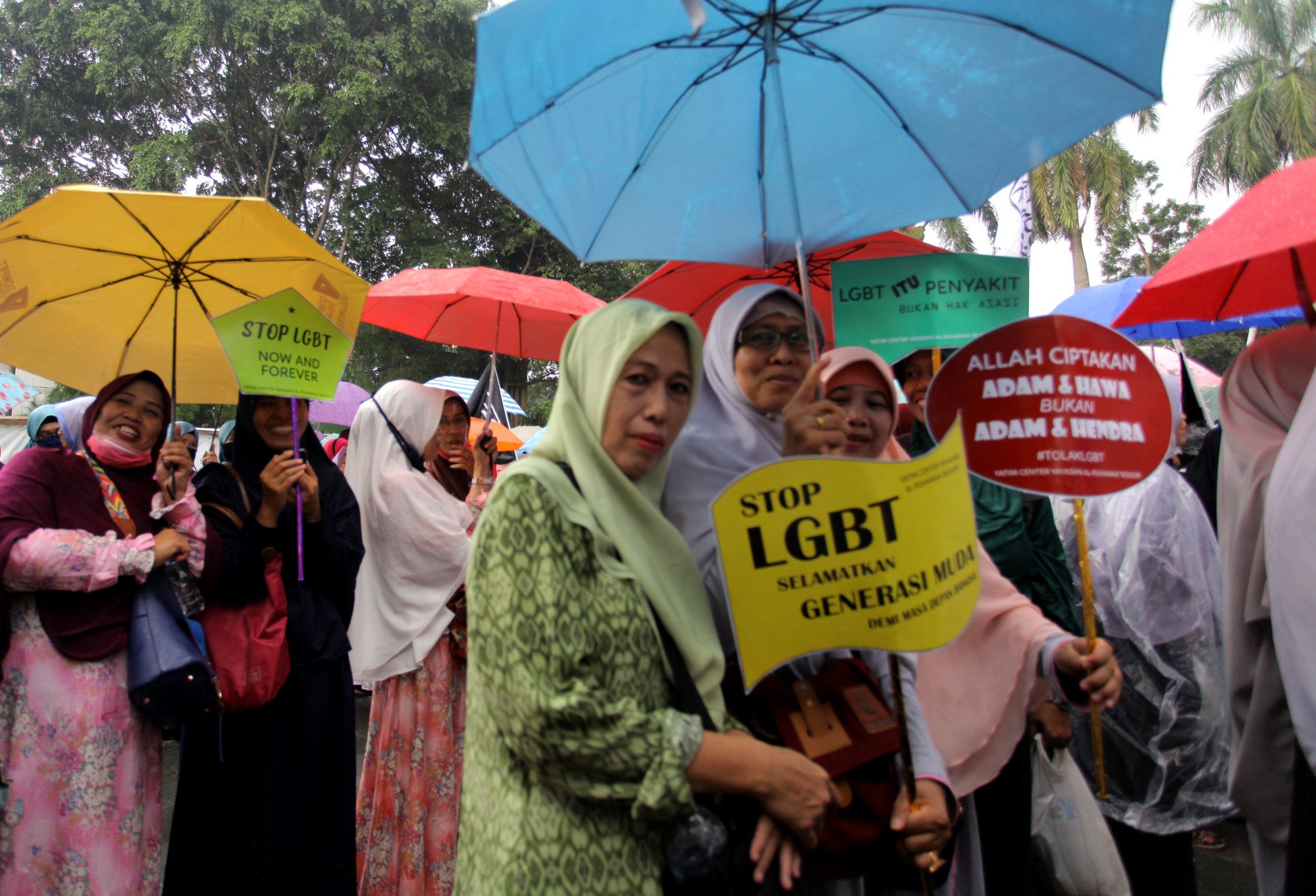
While acknowledging the widespread hostility towards LGBTQ folk in Indonesia, Hendrika said she would never stop trying to educate her fellow Indonesians about sexual diversity.
“I’ve always encouraged our community members to go out and spread positive vibes. For instance, when Mount Lewotobi erupted [a few weeks ago], our group of transwomen started a soup kitchen to help the victims,” she said.
She claimed their assistance had been well-received by everyone they encountered at the disaster site. “LGBT Indonesians have always contributed to our society in so many ways. They could do so much more, given the chance.”
Hendrika said she wished more politicians had the vision and bravery to take a stand for their LGBTQ constituents, as seen in other countries.

